 Come elections, and an upsurge of energy through stirring speeches, promises to the electorate and expectations of the people reflects through the season. Summersalt, the band’s composition as a tribute to the power of democracy and its people, echoes this message. Premiered on April 17, 24 on YouTube, ‘Ha ita I sur’ is a melody that aims to reach a larger audience breaking geographical and class barriers. Fast paced, lyrics in Khasi along with English subtitles, the composition is one that transcends communities and state boundaries with 19K views in a span of 9 days. In conversation with band members of Summersalt (SS) Sunday Shillong explores the aim and objective of the timely composition. Excerpts from the interview are as follows:
Come elections, and an upsurge of energy through stirring speeches, promises to the electorate and expectations of the people reflects through the season. Summersalt, the band’s composition as a tribute to the power of democracy and its people, echoes this message. Premiered on April 17, 24 on YouTube, ‘Ha ita I sur’ is a melody that aims to reach a larger audience breaking geographical and class barriers. Fast paced, lyrics in Khasi along with English subtitles, the composition is one that transcends communities and state boundaries with 19K views in a span of 9 days. In conversation with band members of Summersalt (SS) Sunday Shillong explores the aim and objective of the timely composition. Excerpts from the interview are as follows:
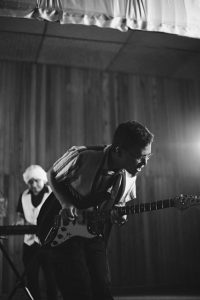 Q. ‘Ha ita I sur’ a composition of Summersalt is speaking to the people/electorate in the midst of polls. What has the general response been?
Q. ‘Ha ita I sur’ a composition of Summersalt is speaking to the people/electorate in the midst of polls. What has the general response been?
SS: We have received mixed responses, some in a fashion that expresses political tones and tenors but some simply giving us a thumbs-up on the kind of concern raised by the lyrics in the song around democratic participation and governance at large. ‘Ha ita i Sur’ reveals a sense of hopelessness in the beginning but ends with a strong sense of hope and a call to action. To that end, we’d like to believe that awareness has been raised and people have heard their own voice by listening to it.
Q. Summersalt has previously composed songs during local assembly elections too but what pushed you to compose this?
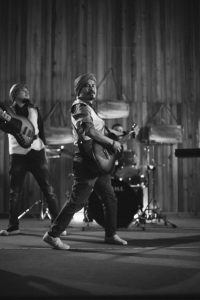 SS: The song was written some years back but recorded not too long ago and it is our own initiative to raise pertinent questions about the absence of sustainable development. Unlike other songs around the election that we have done for the Election Department and Election Commission of India, which circled around convincing people to go to the polling stations and cast their vote, this music video is calling people yet again to fight against all odds and the social ills of today by coming together.
SS: The song was written some years back but recorded not too long ago and it is our own initiative to raise pertinent questions about the absence of sustainable development. Unlike other songs around the election that we have done for the Election Department and Election Commission of India, which circled around convincing people to go to the polling stations and cast their vote, this music video is calling people yet again to fight against all odds and the social ills of today by coming together.
Q. The opening of the video depicts a man on stage who plays a key role in sowing seeds of change among them. Would you say that change begins with one and eventually creates a community? Or is there any other interpretation to the story?
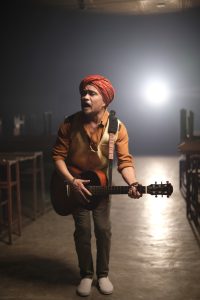 SS: The man in the opening of the video is supposed to be a typical people’s leader who uses his skill to cast a spell and lead people to believe in his personality. The next scene actually revealed how members of the masses were mesmerised and spell-bound by his personality. Call it personality politics, the video and the words, tell us that the leader as depicted has some power to wield but there is some suspicion and question raised on the genuineness of the leader, in a way, no different from the rest of the typical politicians.
SS: The man in the opening of the video is supposed to be a typical people’s leader who uses his skill to cast a spell and lead people to believe in his personality. The next scene actually revealed how members of the masses were mesmerised and spell-bound by his personality. Call it personality politics, the video and the words, tell us that the leader as depicted has some power to wield but there is some suspicion and question raised on the genuineness of the leader, in a way, no different from the rest of the typical politicians.
Q. The line that translates to “We come out in huge numbers to fight with our mind and soul”, how much do you think that has resonated with the people locally?
 SS: The word ‘Mind’ here simply means that we have to ward off emotions of any kind, but give it some serious thoughts, into electing a leader who could make a difference in the socio-political landscape of the state and country. The air of discontentment sort of jells well with the song that puts out tough questions and critiques political leadership of the day. Of course, to us it is very clear that we ask questions not to malign anyone but to drive people to prepare themselves as they decide future leadership. To that extent, we have seen in a small way, the song in its entirety has resonated well with our listeners and viewers.
SS: The word ‘Mind’ here simply means that we have to ward off emotions of any kind, but give it some serious thoughts, into electing a leader who could make a difference in the socio-political landscape of the state and country. The air of discontentment sort of jells well with the song that puts out tough questions and critiques political leadership of the day. Of course, to us it is very clear that we ask questions not to malign anyone but to drive people to prepare themselves as they decide future leadership. To that extent, we have seen in a small way, the song in its entirety has resonated well with our listeners and viewers.
Q. There is also another line that says “it’s a battle that we have to fight against the ills in our town” . What are the kinds of ills that you’d want people to reflect upon?
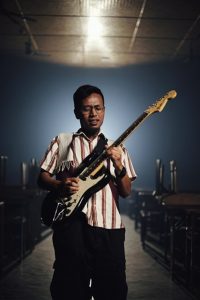 SS: Each community has their own ills, so there’s nothing to narrow down in particular, but if you look at Meghalaya, what comes to our mind is the problem of drugs, people being loose cannons on social media, the problem of people not coming together because of mere meagre differences and the list goes on. We leave it to the listeners to interpret as music and arts are open-ended by nature and design.
SS: Each community has their own ills, so there’s nothing to narrow down in particular, but if you look at Meghalaya, what comes to our mind is the problem of drugs, people being loose cannons on social media, the problem of people not coming together because of mere meagre differences and the list goes on. We leave it to the listeners to interpret as music and arts are open-ended by nature and design.
Q. With the subtitles provided, it’ll be received and clarity among others in the country too. What would you want people to focus most on before casting their votes?
SS: The subtitles are supposed to provide meaning and clarity of course, as we hope the messaging in the song will finally shed some light, that in the present state of disarray, there is a flicker of hope and even call for potential leaders to plunge into real action that could make a difference in line of nation building. Our wish is that the listeners would give it a thought on the messages embedded in the song, exercise their wisdom and elect their leaders not based on personal grounds but for the sake of all of us. For democracy to thrive, a strong opposition is a prerequisite and the voters will play a big role in striking that democratic balance.
 Q. The song highlights the power of the people in a democracy but at the same time also puts an onus on the leaders that we select. What are some such qualities that you’d want in your leader?
Q. The song highlights the power of the people in a democracy but at the same time also puts an onus on the leaders that we select. What are some such qualities that you’d want in your leader?
SS: We all know that in a governance system of, by and for the people, it takes two to tango. We cannot blame the leaders alone, because they are elected by the people. So public wisdom is what this song tries to unearth and such discernment is the need of the hour for the sake of our future and our children’s future. On the kind of leaders we need, I think the word servant-leaders who are tough and gentle, quick-witted and strong-minded, focused and unwavering, basically an ideal statesman. We don’t know if that is too much to ask in an imperfect world.
Q. In the background of the song, there is also a parallel story of avenging one’s truth, as a community, as one. How far do you think this will reflect in the outcome of the elections?
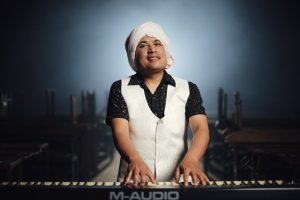 SS: We don’t think that this song alone will impact the election in the local context here, but yes if it resonates with the discontentment and aspirations of the people, it might do just that. We don’t have ways to quantify that but it is a voice of the citizens, no doubt. Very interesting that you mentioned the word ‘Truth’ here, because in every reality, you have the Truth but you also have something similar to the Truth. To that end, we’d like to believe that our listeners would go for the former.
SS: We don’t think that this song alone will impact the election in the local context here, but yes if it resonates with the discontentment and aspirations of the people, it might do just that. We don’t have ways to quantify that but it is a voice of the citizens, no doubt. Very interesting that you mentioned the word ‘Truth’ here, because in every reality, you have the Truth but you also have something similar to the Truth. To that end, we’d like to believe that our listeners would go for the former.
Q. What was the intent behind the choice of place for the music video?
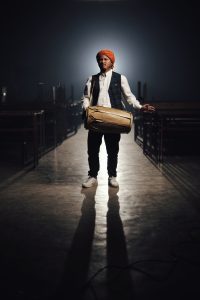 SS: We want it to be semi-urban or semi-rural, because our music has cut across demographic parameters. It is hyper-local yet stylized. We have used cosplay models because we’re aware that the trend can really connect with the youth. Even the costumes used reflect the typical indigenous culture of the Khasi hills. As far as possible, we would like our music to reflect the reality
SS: We want it to be semi-urban or semi-rural, because our music has cut across demographic parameters. It is hyper-local yet stylized. We have used cosplay models because we’re aware that the trend can really connect with the youth. Even the costumes used reflect the typical indigenous culture of the Khasi hills. As far as possible, we would like our music to reflect the reality
Q. How does Summersalt view the voter turnout in our state? What message would the band like to convey to the people at large?
SS: By now we know that the voters’ turnout stands at 76.60%, 3-4% higher than the last Lok Sabha’s turnout and if efforts to drive the voters to the polling station including this song is helping, it is a welcoming trend. Lastly, we think our state and country need to revisit the idea of Meghalaya and India, they are unions of communities and diversities and the idea of inclusiveness needs to be intact, we cannot afford to be divisive. Challenges are obvious but hope for a better future ahead.
——End of interview—-
The band’s initiative towards raising awareness is a great leap forward in terms of personal and community engagement during elections, as well as political reflection. Whether the band’s efforts and people’s expectations meet halfway in alignment will be revealed only in June.
Link to the song:
https://www.youtube.com/watch?
(Interviewed by Esha Chaudhuri)



